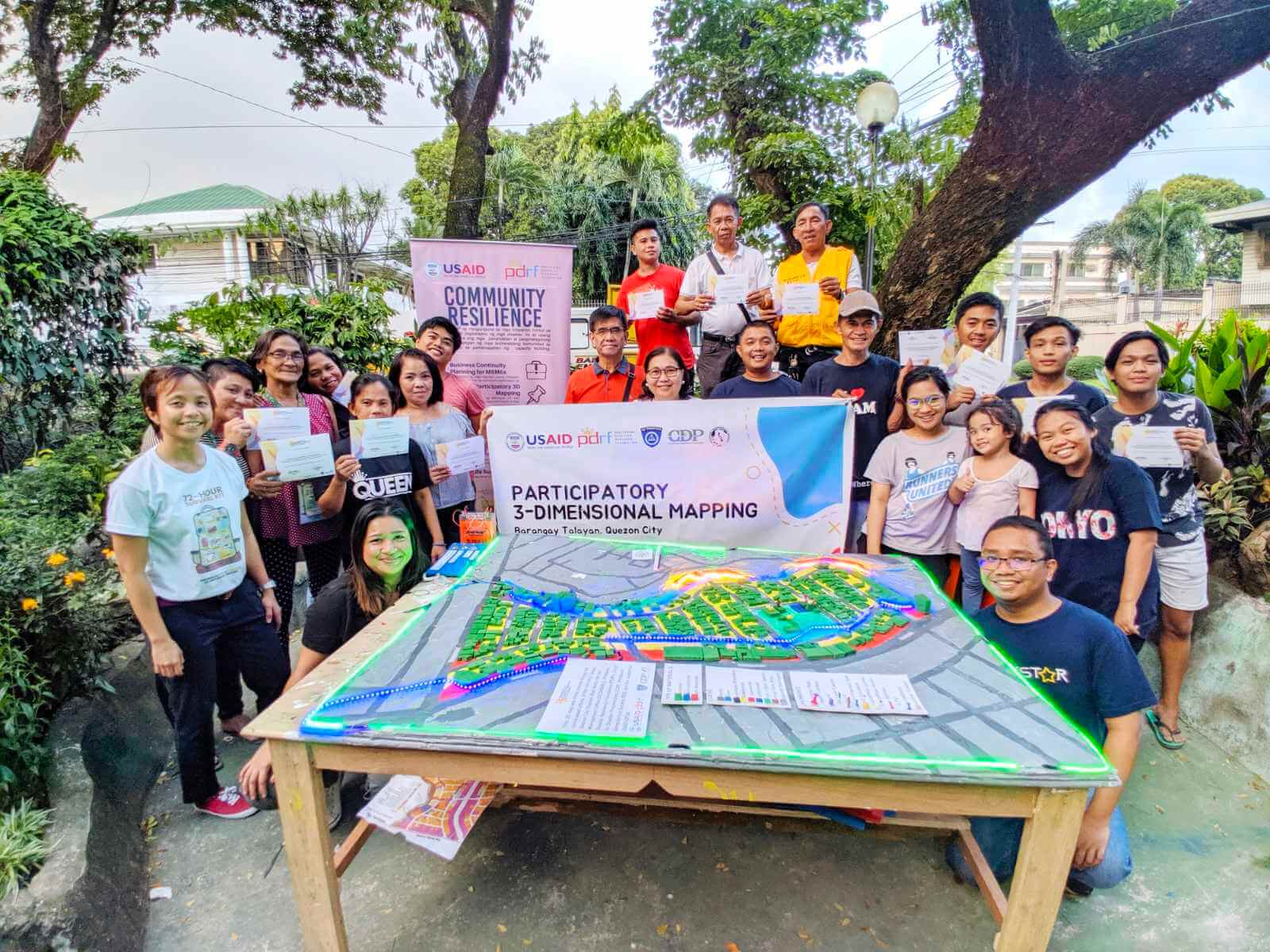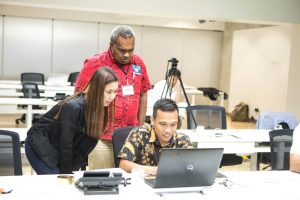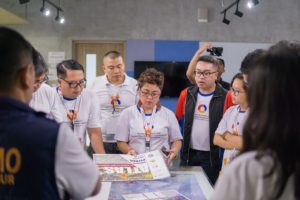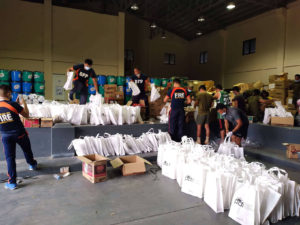PDRF’s Community Resilience Program empowers communities, including local government units, families, and livelihoods to harness local knowledge and capacities in preparing for, quickly responding to, and recovering from disasters. It focuses on the following areas:
Raising local community awareness
The following training programs build the resilience of partner communities and local government units:
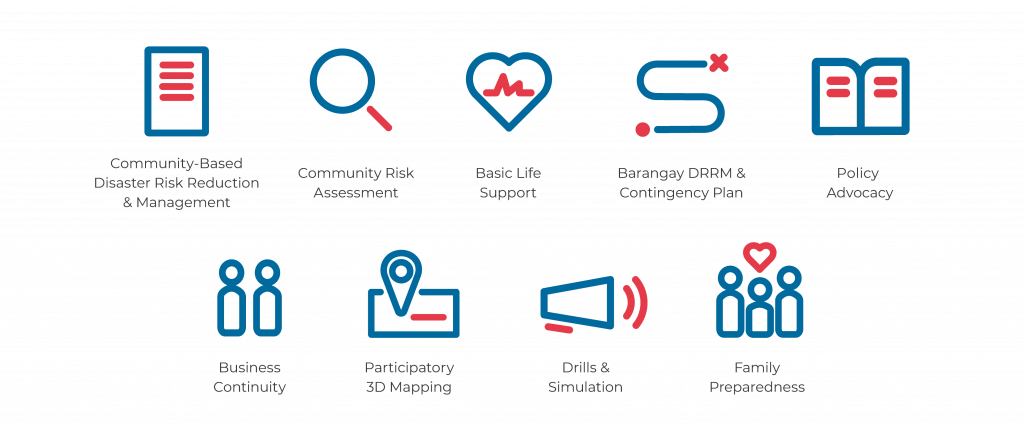
Activities such as Family Preparedness, Business Continuity Orientation for MSMEs, and Community-based Disaster Risk Reduction and Management (CBDRRM) help strengthen communities’ culture of preparedness, helping increase understanding and appreciation of basic DRRM concepts that are essential to developing informed strategies.
Fostering inclusive participation
The program ensures that everyone, especially those from the vulnerable sector, is taking part in decision-making processes. PDRF’s Participatory Three-dimensional Mapping and Community Risk Assessment activities both engage diverse community members to better understand possible hazards, vulnerabilities, and risks and identify common assets, evacuation routes, and capacities that they can put to use during emergencies.
Strengthening strategies, plans, and policies
PDRF recognizes the importance of governance and leadership at the local level in implementing plans and policies prioritizing disaster preparedness and mitigation. Through Contingency Planning Workshops, Barangay Disaster Risk Reduction and Management Planning Workshops, and mentoring sessions, barangay officials and grassroots DRRM champions become more capable of developing DRRM initiatives that are customized for and by the barangay.
Promoting partnerships
A key approach of the program is to highlight the need for collaboration and cooperation among stakeholders. PDRF’s active participation through its memberships in city and local DRRM councils helps solidify public-private partnerships. Furthermore, PDRF helps open up opportunities for collaboration among city governments, barangay governments, academic institutions, civic associations, households, and businesses. These make significant contributions to the sustained reduction of risk and building of resilience.
Ensuring sustainability
At the core of the program’s capacity building initiatives is the value of lasting and sustainable implementation for its beneficiaries. Its different project interventions not only seek to transfer knowledge and technology but also aim to provide practical tools and templates such as the Family Emergency Preparedness Plan, Business Continuity Notebook, Three-Dimensional Map, Pocket Map, Risk Atlas Contingency Plan, and Barangay DRRM Plan. These help ensure that communities have sufficient tools even after the project period.
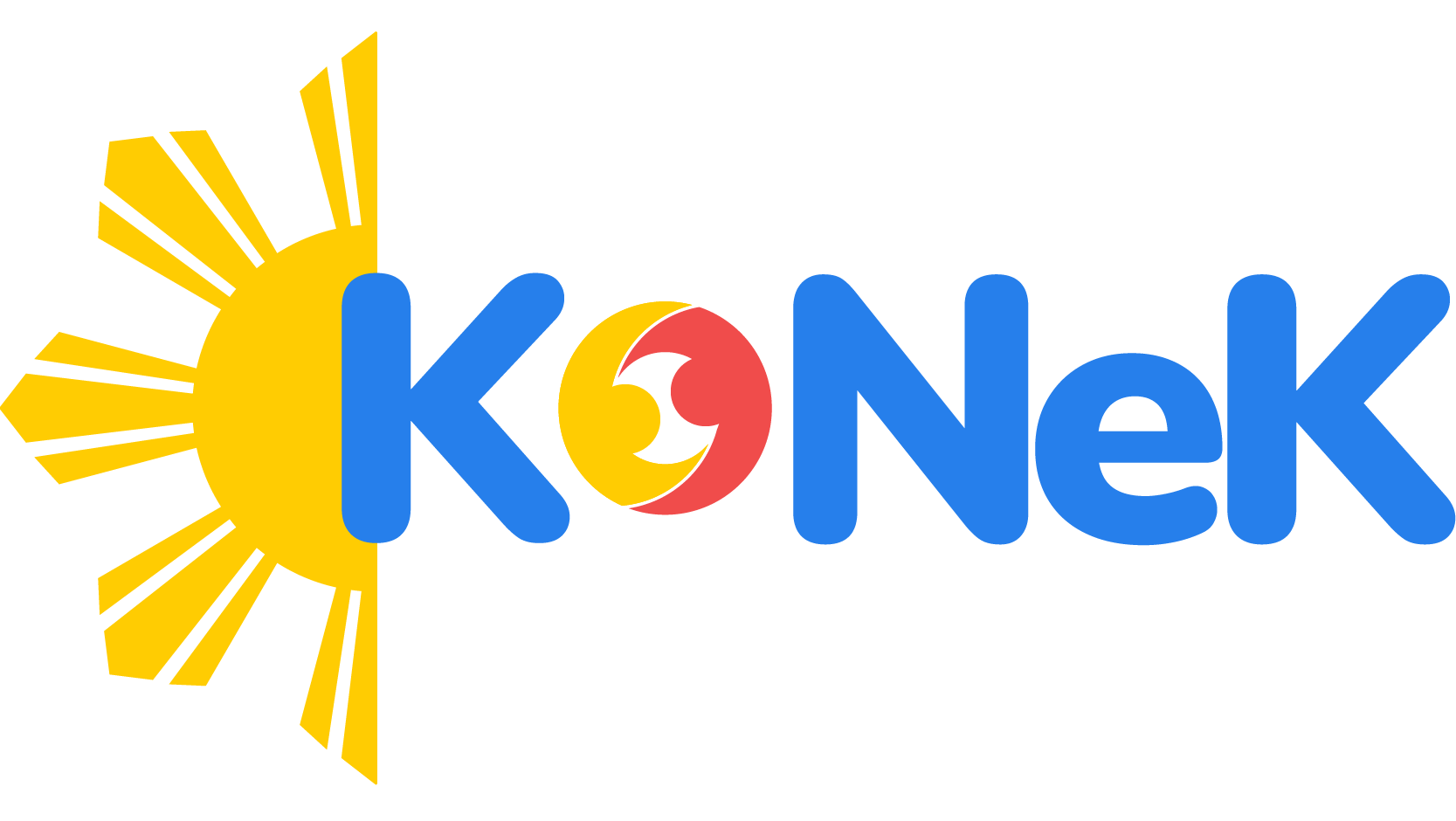
Project Konek or Komunidad at Negosyo Tungo sa Katatagan is a five-year project of PDRF, supported by the USAID Bureau for Humanitarian Assistance, that aims to build a stronger public-private partnership to build disaster-resilient communities and businesses.
Through participatory and inclusive approach, Project Konek aims to build the capacities of the government, businesses, an communities, including families, their livelihoods, and MSMEs, to mitigate risks, prepare for disasters, and protect common critical assets that nurture the community and make it thrive.
The project has three components: (1) Capacity building of barangays on Barangay DRRM Plan, Contingency Plan, and Evacuation Camp Management; (2) PSCP development and advocacy; and (3) Strengthening public-private partnership.
To learn more about Project KoNeK, visit https://www.pdrf.org/project-konek
